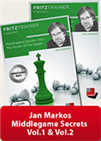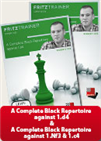Chess and STEM
The London Chess Conference established how chess enhances 21st century skills, interest in STEM subjects and even pre-school education.
No-one seemed more surprised at the renewed interest in the London Chess Conference than its Director, John Foley, from ChessPlus which organized the conference. His expectations were only for sixty attendees, and he started planning accordingly. Despite only two months’ notice and limited social media activity, 120 attendees from 32 different countries attended the conference centre at the University of Roehampton in Southwest London for its ninth edition, the first after the pandemic, the first that was not part of a London Chess Classic festival usually held in December, and the first streamed live throughout. The video recordings are available on the FIDE YouTube channel.
Friday afternoon was devoted to pre-school chess, or “Early Years Chess”, with presentations on different aspects and projects from Armenia, Germany, Greece, Italy, the Netherlands, Russia, Spain and the United States. Some of these presentations were delivered remotely and included talks in Spanish and German with subtitles. Christel Minne, a Belgian educator, presented her children’s chess book Someday, I’ll be a Queen.
 Let us learn together how to find the best spot for the queen in the early middle�game, how to navigate this piece around the board, how to time the queen attack, how to decide whether to exchange it or not, and much more!
Let us learn together how to find the best spot for the queen in the early middle�game, how to navigate this piece around the board, how to time the queen attack, how to decide whether to exchange it or not, and much more!Returning to its raison d’être of exploring chess in education, the conference headline theme was “Chess and STEM”, the acronym for academic subjects in science, technology, engineering and mathematics which will be providing many of our jobs in the future. Several presentations demonstrated how strategic games are integrated into teaching mathematics, informatics and robotics. There is a familiarity to board games, and they make these rather dry subjects more attractive to students.
Jerry Nash, the chairman of the FIDE Education Commission, showed how classroom chess can promote critical thinking or “21st century skills” when the focus is not on the right move but on the process and reflection.

Jerry Nash | Photo: John Yip
Alexey Root, Chief Science Officer at Chessable, presented the Chessable Research Awards and shared a first glimpse of an upcoming Harvard University study that shows how the lower participation rate of girls and women in chess is linked to the performance gap.
Leading providers of school chess brought their latest developments: conference co-sponsors Chess in Schools and Communities (CSC) for the first time mentioned that they are connecting chess and mathematics in their new curriculum, which also pays attention to social and emotional issues.
They have also started to use classroom software for playing chess minigames and other strategy games on the chess board. Carey Fan and Mike Klein from ChessKid revealed that 50,000 kids come to the website daily, there are now more than 8 million accounts. They have just signed a contract with the Bolivian Ministry of Education, which seeks chess as a tool in its fight against poverty.

A lively discussion | Photo: John Yip
An impressive session was that on Chess and Mathematics. Tiago Hirth from the Portuguese maths association Ludus, and Monika Musilek from the Pedagogical University in Vienna, presented results of the Erasmus+ 8x8 project in which they showed that simple games can help with learning mathematics as the same thought processes are involved. Hari Neocleous, a maths teacher from London, showed how chess can be adapted to teach numeracy in primary school. Rita Atkins, recently appointed Secretary of the FIDE Education Commission, showed stimulating exercises which would stretch those taking mathematics in secondary school. The session concluded with Vince Negri pointing that mathematical thinking is also about drawing conclusions from what is in front of you. His example was to show that the results of a calculation can be estimated within a range in a similar way to how the right move can be arrived at through elimination.
 These video courses feature a black repertoire against 1.d4, 1.Nf3 and 1.c4. The recommended variations are easy to learn and not difficult to remember, but also pose White serious challenges.
These video courses feature a black repertoire against 1.d4, 1.Nf3 and 1.c4. The recommended variations are easy to learn and not difficult to remember, but also pose White serious challenges.The session Chess for All Children tackled how chess helps students with learning difficulties or mental health issues. Beatrice Rapaccini, a science teacher and innovator from Italy, argued for teachers using the game to instil creativity, which is lacking in most school subjects. Since creativity is a parameter measured in the Pisa academic monitoring exercise, it is worth taking games seriously in the classroom. Anastasia Sorokina presented the Infinite Project for children diagnosed with autism spectrum disorder. She described suitable playing arrangements which would lead to more productive learning sessions. The speaker from Dansk Skoleskak, Mikkel Nørgaard, explained how chess can be used to improve mental health at school and how his organization has been training 200 special needs teachers.
Several presenters focused on their respective countries. In India, school chess is mostly seen as a sport and is only recently being recognised as an educational tool, said Abhijit Kunte on behalf of the Indian Chess Federation. The federation in neighbouring Pakistan was relatively inactive until a new team took over in 2022 and pushed activities energetically in several directions with schools being of critical importance, as Hanif Qureishi, the President of
the Pakistan Chess Federation pointed out. Another very dynamic federation is Romania, whose new school chess materials have recently been accredited by the Ministry of Education, opening the way to thousands more teachers and hundreds of additional schools, as Mădălina-Maria Lejean-Anușca revealed.
Mark Nowacki, founder of the Singapore-based education consultancy LogicMills and an advisor of FIDE, spoke about the consequences of school closings as during the pandemic. Catching up by speeding the curriculum has been shown to increase the damage. Based on anecdotal evidence that children who benefited from chess were more resilient, Nowacki devised an international study and is inviting countries to join.
As usual at London Chess Conferences, there were numerous side meetings. Notably, the FIDE Education Commission met for the first time under the leadership of Chairman Jerry Nash (USA) and Secretary Rita Atkins (Hungary). They are preparing a new website and a repository of research on chess in education. Franck Droin, the French chairman of the ECU Social Commission, met among others André Vögtlin, President of the Swiss Chess Federation, who has replaced Geir Nesheim as chairman of the FIDE Social Commission. The programme was rounded up by a presentation from Mikhail Korenman on chess as an intervention for imprisoned men in Cook County, Illinois, which had a positive effect on recidivism.
The conference, which had FIDE, ECU and CSC as partners and English Chess Federation, ChessKid, Chessable, Caissa, Chess:Manager and Game Ahead Consulting as co-sponsors, was amply used for interviews and side meetings. The FIDE Education and Social Commissions took the opportunity to hold several meetings at the venue. Social interaction was enhanced by large tables in the dining area and reserved spaces in a local pub, to which many delegates resorted in the evening for dinner.
The conference ended with concluding remarks by Dana Reizniece-Ozola. The FIDE Managing Director encouraged all attendees to reach out to the wider education community and promised FIDE´s further commitment to high-quality conferences.
Links
























